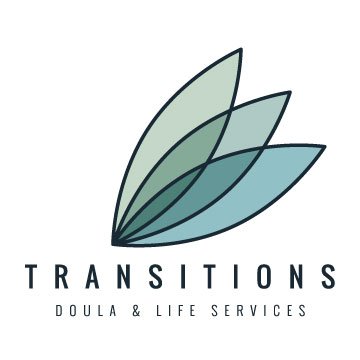6 Reasons Why Overnight Doula Support is Game Changing
/“I would wake up well rested, dishes/bottles done, laundry folded, picked up living room and just overall a new person ready to take on the day. As a sleep deprived mother who struggles with anxiety, the quality of sleep I got knowing that my babe was under her watchful eye was unmatched.”
-Lauren, Overnight Doula Client
My first baby was such a terrible sleeper, it’s actually amazing we had a second.
He would wake up 3 to 4 times a night until he was nine months old, and after the second wake up, he would be awake for a minimum of an hour and a half. I remember laying on the floor next to his play mat while he partied for hours. The play mat played a certain song that still makes me nauseous when I hear it, almost twelve years later. I would beg him to go back to sleep. Some nights I’d just sit and cry. I’d look out the window at all the other houses on the street, not seeing any other lights and being incredibly jealous of my partner and anyone else who was peacefully sleeping.
If I could have hired someone, even once a week, to come and stay with my baby so I could have had a decent stretch of sleep, I would have had a much better postpartum period. My anxiety was off the charts and I found myself irritated with everyone around me, especially my partner.
If this sounds familiar, read on!
1. Sleep! Sweet, sweet sleep!
The number one complaint of parents of new babies is how disturbed sleep tends to be. The lack of sleep can make a challenging season of life even more difficult.
“We know when our sleep suffers everything else in life becomes more difficult to manage,” says Kimberly Belben, Certified Perinatal Mental Health Therapist. “We become more irritable and everything can seem heavier, that it takes more energy and we just cannot seem to catch up.”
Belben adds, “As sleep distrubances continue, many women become anxious surrounding sleep. Of course sleep disruption is to be expected at this time, yet if you find yourself struggling to sleep when baby sleeps you might benefit from some support in this area. Loneliness, resenting others (partner/spouse for example), worry surrounding nap times and bed times, and struggling to let things go can all be indicators that sleep disruption is more than just what happens after you have a baby. Just because sleep disruption is normal does not mean you have to suffer through it.”
2. Protect your mental health.
According to the Sleep Foundation, “While there are many factors at play, it does appear that sleep deprivation can exacerbate symptoms of postpartum depression. This is true for both parents, with research suggesting that both the mothers and the fathers of young babies are more likely to have depressive symptoms if the mother sleeps poorly. Sleep deprivation is also linked to suicidal ideation in women with postpartum depression.”
If you or your partner are struggling with postpartum depression at all, consider bringing in an overnight doula to help alleviate the sleep deprivation. If you or your partner are experiencing suicidal ideation, please seek emergency help by calling 911 or the Suicide Hotline 988.
3. Take household tasks off of your shoulders.
Imagine waking up in the morning and your laundry is neatly folded, your home is tidy, dishwasher has been emptied, bottles are washed and sterilized, coffee is made, and breakfast is ready…
I’m 3.5 years postpartum, and this still sounds like heaven! If you have things you’d like done while you and baby are sleeping, just make a list and give it to your doula when her shift begins!
4. Expert advice and reassurance.
Overnight doulas are ripe with wisdom when it comes to caring for newborns and families. If you have questions about sleep, feeding, newborn care, or just need to talk to someone who gets it, an overnight doula will be able to answer those questions and provide reassurance or referrals.
If your anxiety spikes in the evening, a conversation with your doula before hitting the hay can help you fall asleep faster and stay asleep longer.
5. Set your baby’s foundation for good sleep.
Ashlyn Solorzano, postpartum doula, explains that she likes to start setting baby’s foundation for good sleep. “Sleep training shouldn’t start until 6 months, but there are so many ways to set the foundation before then. I like to make sure they have a good bedtime routine, the baby is getting fresh air, play time, and physical touch during the day, and that the room is set up well. Also, I do a lot of education on what is developmentally appropriate for babies, specifically when it comes to sleep, which is something that comes up often.”
6. It’s a proactive step for your wellbeing.
Kelsie Thomas, postpartum doula, explains having an overnight doula provides a self-care accountability check. “This is about creating that postpartum sanctuary plan, and doulas help get mom healed. Sleep is one of the biggest factors when it comes to the body healing from giving birth, in addition to nutrient dense foods, which Kelsie suggests having your doula prepare while you sleep.
Postpartum doula support can make a huge difference in your postpartum experience, daytime or night! Transitions: Doula & Life Services offers both services, and we’d be honored to support you during such an important time in your life.


